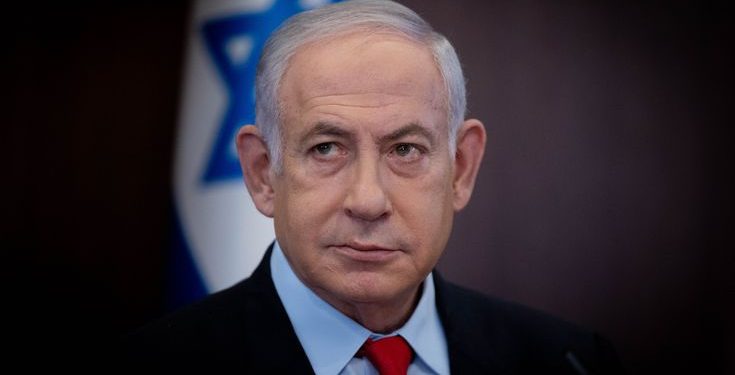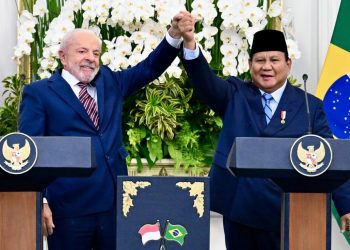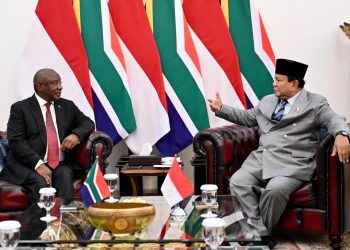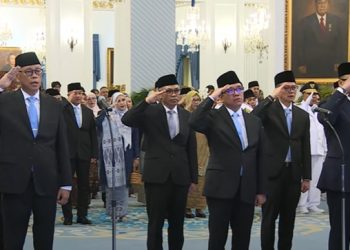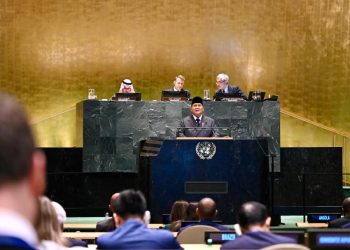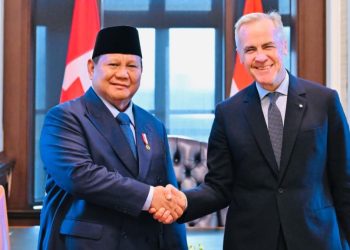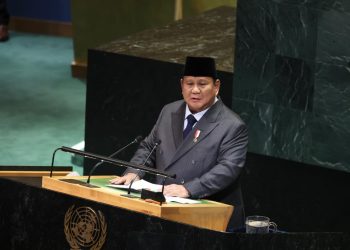Jakarta, Indonesia Sentinel — The International Criminal Court (ICC) has issued arrest warrants for Israeli Prime Minister Benjamin Netanyahu and former Defense Minister Yoav Gallant, accusing them of war crimes and crimes against humanity during the Gaza war.
This marks a historic first, making Benjamin Netanyahu the first Israeli leader to be summoned by an international court over alleged actions against Palestinians in the 76-year conflict.
According to The Guardian, the ICC believed that Netanyahu and Gallant “bear criminal responsibility” for war crimes, crimes against humanity including murder and persecution, as well as other inhumane acts carried out in collaboration with others.
“The court considered that there are reasonable grounds to believe that both individuals intentionally and knowingly deprived the civilian population in Gaza of objects indispensable to their survival, including food, water, and medicine and medical supplies, as well as fuel and electricity,” the warrant stated.
Israel, which is not a signatory to the Rome Statute that governs the ICC, has dismissed the warrants outright. Netanyahu accused the court of anti-Semitism, calling the move a politically motivated attack.
“No outrageous anti-Israel decision will prevent us, and it will not prevent me, from continuing to defend our country in every way. We will not yield to pressure,” Netanyahu said in a statement.
U.S. Condemns ICC Decision
The United States, a close ally of Israel, strongly criticized the ICC’s decision. President Joe Biden described the arrest warrants as “outrageous” in a statement on Thursday night. The U.S. National Security Council also issued a statement rejecting the ICC’s jurisdiction over the matter.
“The United States has been clear that the ICC does not have jurisdiction over this matter. In coordination with partners, including Israel, we are discussing next steps,” the statement read.
The move has drawn accusations of double standards against the Biden administration, as the U.S. previously welcomed ICC arrest warrants for Russian President Vladimir Putin and other Russian officials over alleged atrocities in Ukraine.
Critics, particularly from nations in the Global South, have highlighted the apparent inconsistency in US support for the ICC’s authority.
Israeli Strike Indonesia Hospital in Gaza, Power Outrage Kills Two Patients
However, Human rights organizations broadly welcomed the ICC’s decision, viewing it as a step toward accountability. Balkees Jarrah, associate international justice director at Human Rights Watch, said the warrants challenge the perception that some individuals are beyond the reach of international law.
“Whether the ICC can effectively deliver on its mandate will depend on governments’ willingness to support justice no matter where abuses are committed and by whom,” Jarrah said. “These warrants should finally push the international community to address atrocities and secure justice for all victims in Palestine and Israel.”
Legal and Diplomatic Implications
While the ICC’s arrest warrants do not guarantee arrest, it could restrict Netanyahu and Gallant ability to travel to the court’s member states. Thus, Netanyahu and Gallant are now fugitives in the eyes of the ICC’s 124 member states, spanning Europe, Africa, the Americas, and the Asia-Pacific.
Under the Rome Statute, member states are obligated to enforce the ICC’s decisions, which means either leader could be arrested if they travel to one of these countries.
Jonathan Kuttab, an ICC legal expert, emphasized the obligations of member states, stating, “All 124 ICC members are legally bound to comply with the court’s decisions. This includes apprehending Netanyahu or Gallant should they enter their territories.”
The arrest warrants against Netanyahu and Gallant issued by the ICC raises critical questions about the scope of international justice and the enforcement of accountability for leaders of powerful nations. As the legal battle unfolds, the case will test the international community’s resolve to uphold the rule of law, regardless of political and geopolitical complexities.
(Raidi/Agung)


